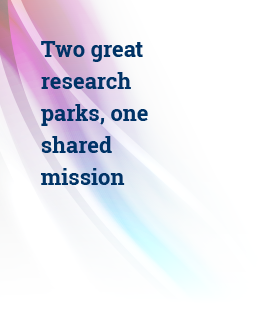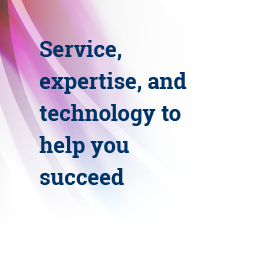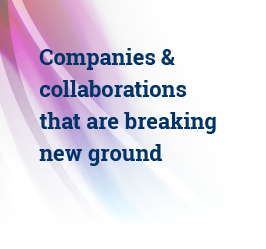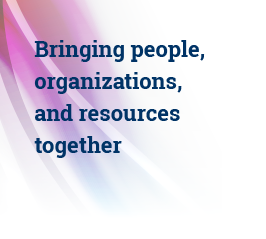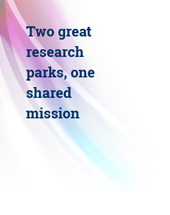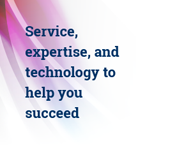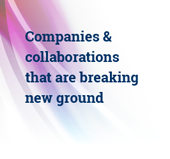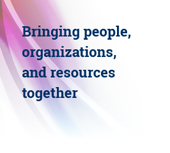Tech Park is Region’s Secret Weapon
Inside Tucson Business
Brad Allis
February 5, 2016
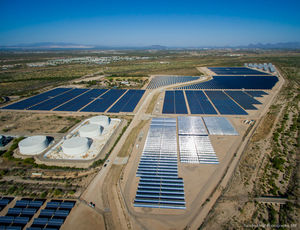
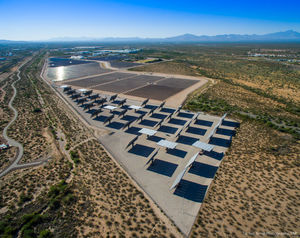
Although it has been around for over two decades and is one of the largest employment centers in the region, many in southern Arizona are either unaware of the existence of the UA Tech Park, or not clear on the purpose and goals of the park.
The University of Arizona purchased the land and most of the buildings at the tech park back in 1994 with the goal of attracting high-tech businesses to the area, as well as providing opportunities for University of Arizona faculty, students and graduates.
Today the UA Tech Park hosts 45 companies and employs nearly 6,500 skilled workers, with an average salary just north of $91,000, which is double the average for Pima County workers.
“I think we’ve been one of the most successful tech parks, not by our judgment but in the tech park world,” said Bruce A. Wright, the associate vice president of Tech Parks Arizona. “We are one of the most successful university tech parks in the country.”
In addition to the 6,500 people employed on the campus, a 2013 study estimated that another 8,100 people were indirectly employed because of the businesses housed at the park. The total wage impact of those employed directly and indirectly is over $800 million, and that number is expected to push nearly $1 billion when a new study is commissioned at the end of the year.
The tax impact in Pima County of the tech park is over $51 million, while the total output impact in the county was $2.3 billion in 2013.
To sum up what the tech park is about, is they are trying to become a place that advances new technologies and do this with a two pronged approach.
The first strategy is what Wright refers to as an inside-out strategy, where they try to assist U of A faculty and students to take there ideas, discoveries and their inventions and put those into a marketable product. The idea is to either invest that product into an existing company through a license or to turn the product into a start-up company.
“The park provides a place for the product to grow,” said Wright. “To develop the product.”
The second strategy is outside-in, to attract technology companies from around the world to affiliate with University of Arizona, to use us as a site for new product development market entry.
They like to call the park “interactive ground.”
“We try to connect the university community and industry on this technology development process,” said Wright. “Our recruitment efforts are designed to say we at the university have world class expertise in six technology sectors. If you’re in one of those technologies sectors, there’s a reason to consider bringing your business to Tucson and the tech park.”
The six technology sectors or areas of focus are all either unique to Arizona, or are benefitted by the uniqueness of Tucson and the Sonoran Desert.
The first area of focus is defense and security. With Davis-Monthan, Fort Huachuca, Raytheon and the issues at the border, there are a number of ways for defense and security companies to develop and test their products.
The second area is mining technology, which of course fits in well with Tucson and southern Arizona as a whole.
There may be few places in the world, save for Israel, where arid lands agriculture and water is more studied. In fact, Wright said they have had a lot of contact with companies in Israel who are interesting in tapping into the expertise at the University of Arizona in this subject.
Biotechnology is the fourth area, while intelligent transportation and smart vehicles is the fifth. Essentially, self-driving vehicles are seen as the future of transportation and the university and the park are at the forefront of much of that technology.
The final sector is advanced energy, especially solar energy. Not only does Arizona have more sunlight than nearly any place in the country, but the tech park has one of the biggest solar research areas in the world.
While each of these is a separate area of expertise, they can all tap into other things that the UofA does well, specifically information/big data, advanced manufacturing and sustainable development and imaging/optics/photonics.
“Each of those sectors has an industry cluster here in the town we are inviting place for them,” said Wright. “Our core issue is that we can offer those companies a place to test validate and demonstrate their technology or product to the marketplace.”
There are many advantages to the university, none bigger than collaborative research and development. Businesses are able to help fund the research within the university.
The other big benefit is not only to the university, but to the community as well. By bringing these companies to Tucson, they are providing high paying employment opportunities to U of A students.
“We want to keep the best and brightest here in Tucson,” said Wright. “We don’t want to train them and then ship them off to San Francisco or Los Angeles or Chicago. The only way you’re going to do that is to create high-quality employment opportunities.”
One other goal of the tech park is to add a new wrinkle to the local economy. Most business in and around Tucson are either big, institutional employers or the businesses that supply them either directly or indirectly. Wright pointed out that so much of the city’s economy is centered around the University or Arizona and public schools, Raytheon, the mines, Fort Huachuca and Davis-Monthan. Not only do they employ a huge amount of the population, but so many local businesses are either vendors or owe the bulk of their business to their employees (or students in the case of the U of A.)
Just think of the number of business by the university or Davis-Monthan that are reliant on those employers, from apartments, to restaurants, to shops.
The businesses that come to the tech park will still need those support businesses, but the nature of those high tech industries is to sell their products outside of Tucson and bring in new dollars to the community.
“We need to diversify and expand the economy so that we are producing companies whose primary customers are someplace else,” said Wright. “That’s when you bring $2 in your region and create wealth. We’re all about trying to create and help companies that do that.”
Tech Parks Arizona is actively recruiting new businesses, as well as trying to get products developed at the university to companies. They are trying to make not only the tech park, but the surrounding communities attractive to these companies. This includes working to make the campus better, working with Vail to continue to grow the community and make it attractive to businesses and prospective employees and working with other technology sectors in the area to make Tucson, Pima County and Southern Arizona attractive to these cutting edge companies.







